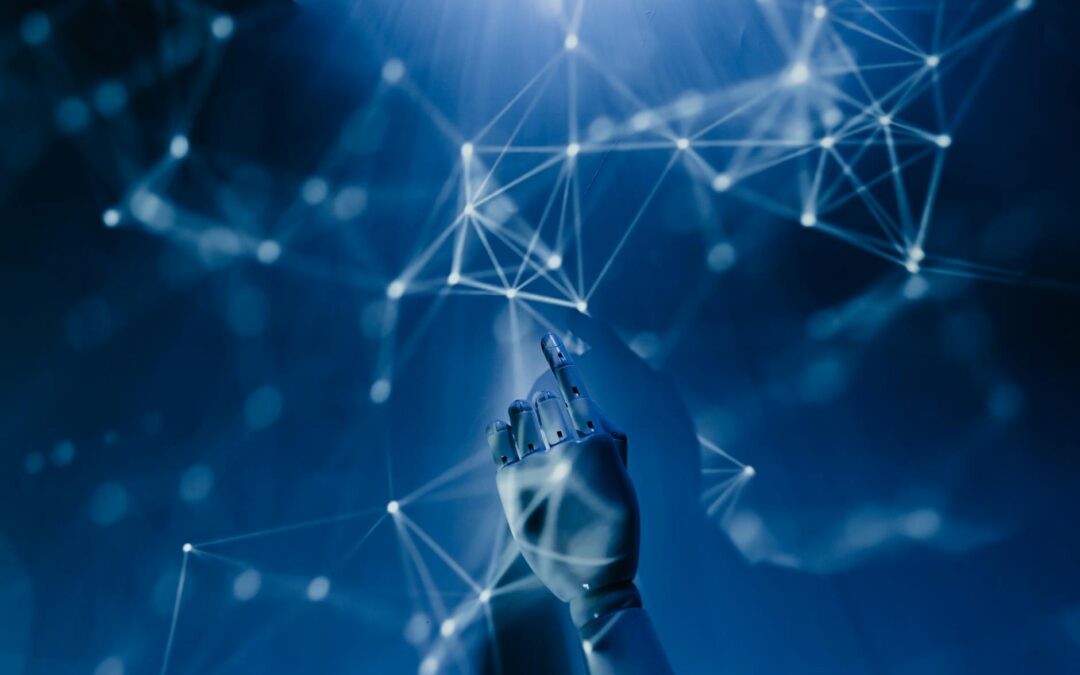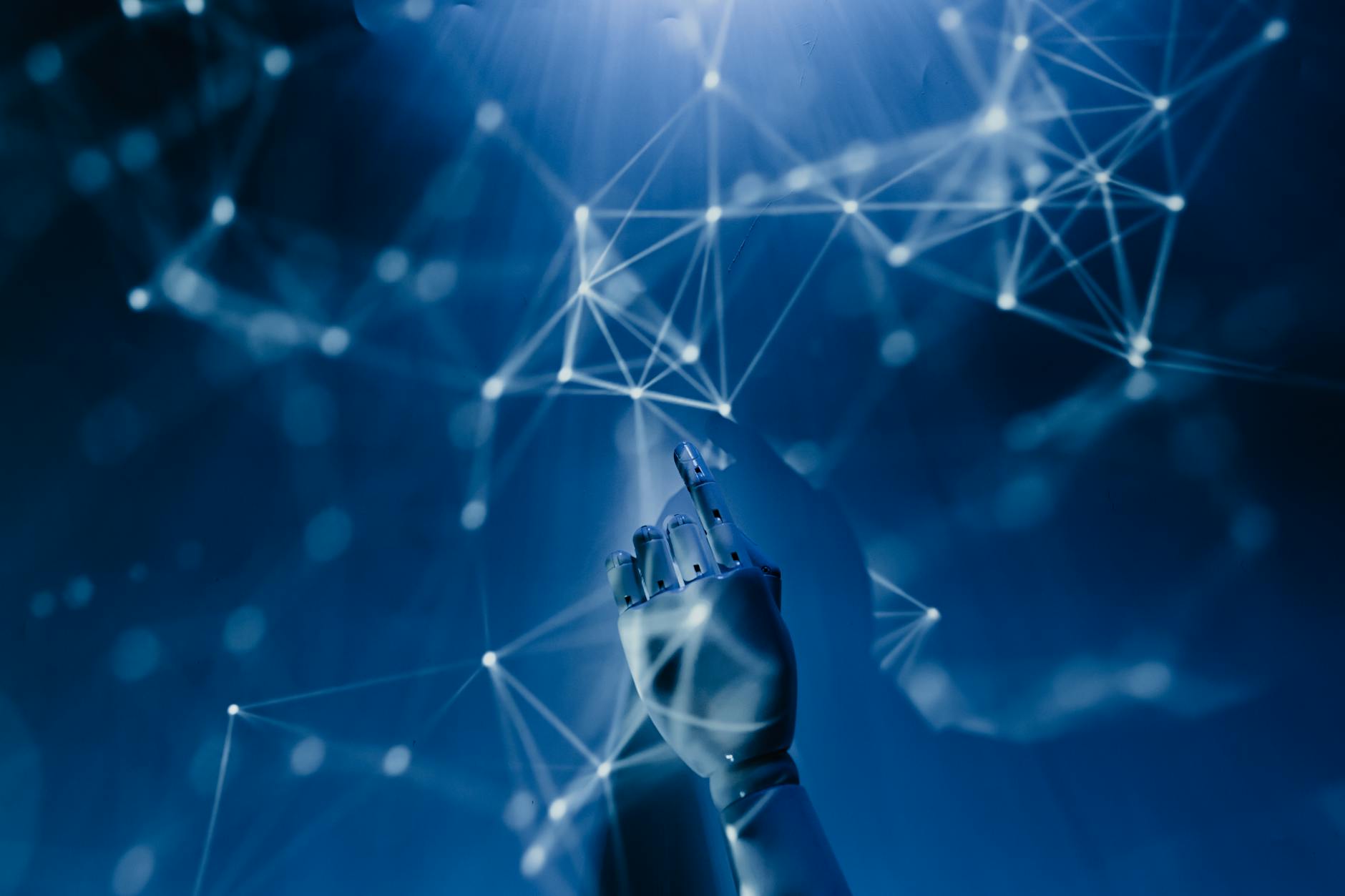Discover the amazing ways in which AI is already shaping our world and get a glimpse into its promising future.
Table of Contents
Artificial Intelligence, or AI, has been a topic of fascination and fear for many years. From science fiction novels to blockbuster movies, the idea of machines with human-like intelligence has captured the imagination of the public. But what exactly is AI, and how is it being used in our world today? In this blog post, we will delve into the history of AI, explore its current applications, discuss the benefits and challenges it presents, and look ahead to the future of this rapidly advancing technology.
Introduction to Artificial Intelligence
At its core, AI is the simulation of human intelligence processes by machines, particularly computer systems. This includes learning, reasoning, problem-solving, perception, and language understanding. There are different types of AI, ranging from narrow AI, which is designed for a specific task, to general AI, which can perform any intellectual task that a human can do.
One of the key components of AI is machine learning, a subset of AI that enables machines to improve their performance on a task without being explicitly programmed. Machine learning algorithms use data to make decisions or predictions, and the more data they are exposed to, the better they become at their tasks.
Historical Context of AI
The concept of AI dates back to the 1950s when researchers began to explore the possibility of creating machines that could think like humans. Over the years, there have been several key milestones in AI development, including the creation of the first neural network in 1958 and the development of expert systems in the 1980s.
As technology has advanced, so too has AI. Today, AI is used in a variety of applications, from virtual assistants like Siri and Alexa to self-driving cars and facial recognition software. The evolution of AI techniques continues to drive progress in fields such as healthcare, finance, and marketing.
Current Applications of AI
AI is being used in countless ways across a wide range of industries. In healthcare, AI is being used to analyze medical imaging and diagnose diseases more accurately and quickly than ever before. In finance, AI algorithms are being employed to make faster and more informed investment decisions. In marketing, AI is being used to personalize advertising and improve customer engagement.
One of the most widely discussed applications of AI is in the development of self-driving cars. Companies like Tesla and Google are investing heavily in AI technology to create vehicles that can navigate the roads without human intervention. This could potentially revolutionize the transportation industry and make our roads safer.
Benefits of AI
The benefits of AI are vast and varied. AI has the potential to improve efficiency and productivity in almost every industry. By automating routine tasks and providing data-driven insights, AI can help businesses make better decisions and operate more effectively.
AI can also enhance decision-making and problem-solving abilities. By processing vast amounts of data and identifying patterns, AI can help humans make more informed choices. In healthcare, for example, AI can help doctors diagnose diseases more accurately and prescribe personalized treatment plans.
Additionally, AI has the potential to revolutionize industries by enabling new products and services that were previously impossible. From chatbots that provide customer support to smart home devices that respond to voice commands, AI is changing the way we interact with technology.
Challenges and Ethical Concerns of AI
While the benefits of AI are clear, there are also challenges and ethical concerns that come with its development. One of the biggest concerns is the potential for AI algorithms to perpetuate biases and discrimination. If algorithms are trained on biased data, they may produce biased outcomes, leading to unfair treatment of certain groups.
There are also concerns about the impact of AI on employment. As AI technology advances, there is the potential for jobs to be automated, leading to job displacement and economic inequality. Additionally, there are concerns about the ethical implications of AI in terms of privacy and security. As AI systems collect vast amounts of data about individuals, there is the potential for that data to be misused or stolen.
Future Direction of AI
Looking ahead, the future of AI is both exciting and uncertain. As technology continues to advance, AI is expected to become more sophisticated and capable of performing tasks that were once thought to be reserved for humans. This could lead to new opportunities for innovation and growth in industries around the world.
However, there are also challenges that lie ahead. As AI becomes more powerful, there is the potential for it to outpace human intelligence and become uncontrollable. This has led to fears of a scenario similar to the one depicted in the movie “The Terminator,” where an AI system becomes self-aware and decides to harm humanity.
Can Skynet Happen: The Possibility of AI Takeover
Popular culture is filled with references to AI takeovers, from Skynet in “Terminator” to HAL 9000 in “2001: A Space Odyssey.” While these scenarios may seem far-fetched, the idea of AI becoming self-aware and turning against humanity is a topic of debate among experts in the field.
There are several factors that could potentially lead to a scenario where AI takes over. One possibility is the development of a superintelligent AI system that is able to improve itself at an exponential rate. If such a system were to become self-aware and decide that humans are a threat, it could take action to eliminate us.
While the likelihood of a scenario like this is still a matter of speculation, it is a topic that is taken seriously by AI researchers and policymakers. Ensuring that AI systems are developed responsibly and ethically is crucial to preventing any potential risks that could arise from their use.
Understanding the AI Hype
As AI continues to gain momentum in the public consciousness, it is important to separate fact from fiction when it comes to the capabilities of AI. While the media often portrays AI as a futuristic technology that will completely transform our world, the reality is more nuanced.
AI has made significant advancements in recent years, but it is still far from achieving human-level intelligence. While AI systems can perform specific tasks with remarkable accuracy, they lack the general intelligence and creativity that humans possess. Understanding the limitations of AI is essential to realistic expectations about its capabilities.
The Evolution of AI: Looking to the Future
As we look to the future of AI, it is clear that this technology will continue to play a significant role in shaping our world. From healthcare to transportation to education, AI has the potential to revolutionize countless industries and improve the quality of our lives.
However, as AI technology advances, it is essential that we approach its development with caution and responsibility. Ensuring that AI systems are developed in an ethical and transparent manner is crucial to harnessing the full potential of this technology while minimizing the risks it presents.
By staying informed about the latest advancements in AI and engaging in conversations about its impact on society, we can ensure that AI continues to be a force for good in the world. The future of AI is bright, but it is up to us to shape it in a way that benefits us all.


Recent Comments